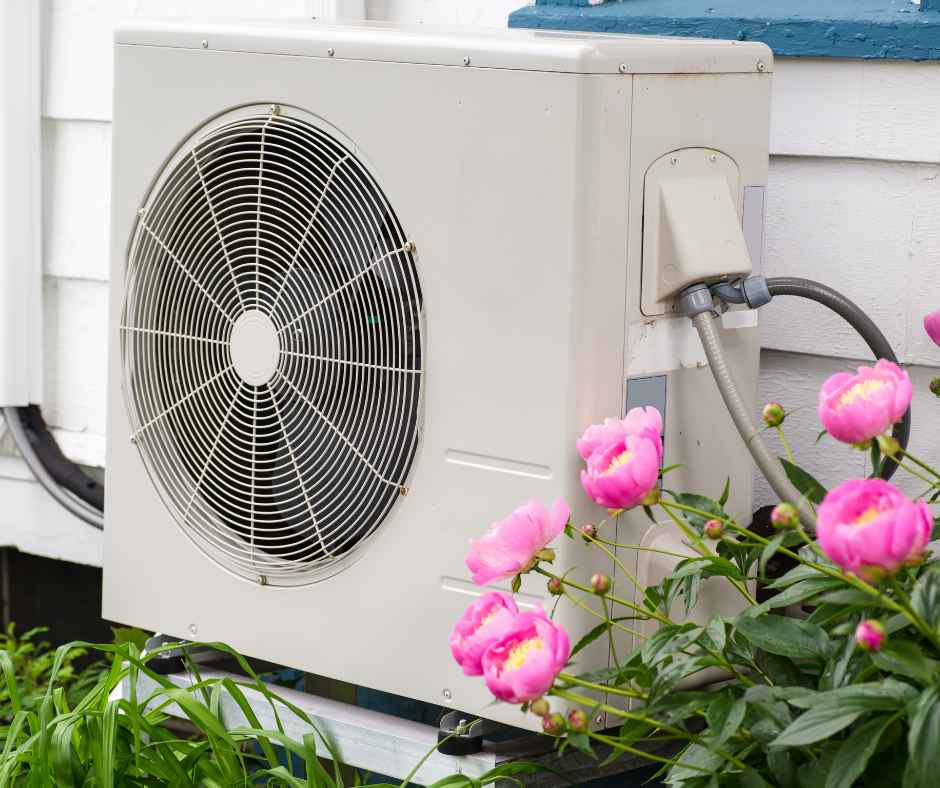0% No Interest Financing for 6 Months*
Delivering Trusted Service Since 1951
Back to Blog
How Long Do Heat Pumps Last?


Happy Customers Choose...
Heat pumps are one of the most efficient ways to keep your home comfortable year-round. But like any hardworking system, they won’t last forever. If your heat pump has been keeping you cozy for years, you might be wondering how much longer it has left. Understanding the typical lifespan of a heat pump — and what factors influence it — can help you plan for repairs or replacement before problems catch you off guard. Ignoring an aging system can lead to unexpected breakdowns, higher energy bills, or costly repairs.
In this blog, we’ll break down how long heat pumps usually last, the warning signs of a failing system, and helpful tips to extend its lifespan so you can stay comfortable without worry.
How Long Do Heat Pumps Typically Last?
Heat pumps are built to handle year-round heating and cooling, making them a valuable investment for homeowners. On average, most heat pumps last between 10 to 15 years. However, with proper care and maintenance, some systems can operate efficiently for up to 20 years. The lifespan of your heat pump largely depends on how well it’s maintained, how often it’s used, and the climate where you live.
In regions with milder temperatures, heat pumps often last longer because they don’t have to work as hard to keep your home comfortable. But in areas with extreme heat or cold, heat pumps may experience more wear and tear, shortening their lifespan. Another key factor is installation — a properly installed heat pump will run more efficiently and last longer than one that was poorly installed or undersized for the home.
Skipping regular maintenance or delaying repairs can dramatically shorten a heat pump’s life. Dirty filters, clogged coils, or refrigerant issues put extra strain on the system, causing components to fail sooner. On the other hand, scheduling routine tune-ups, changing filters regularly, and addressing small issues early can help you get the most years out of your heat pump.
In short, while 10 to 15 years is the typical range for heat pump longevity, the way you care for your system makes all the difference. With expert installation and consistent maintenance, your heat pump can provide reliable comfort for many years.
Key Signs Your Heat Pump Is Nearing the End
Even the best heat pumps won’t last forever. As your system ages, it may start showing signs that it’s nearing the end of its lifespan. Catching these warning signs early can help you avoid costly repairs or a total breakdown when you least expect it.
Common Signs
Look out for these common symptoms that your heat pump may be on its last leg:
- Inconsistent heating or cooling throughout your home
- Rising energy bills without a clear reason
- Frequent repairs or repeated service calls
- Strange noises like grinding, rattling, or squealing
- Foul or musty odors coming from the unit
- Difficulty switching between heating and cooling modes
- The system runs longer cycles or struggles to reach the set temperature
These signs can develop gradually, so it’s important to pay attention to how your heat pump performs over time.
Causes/Why It Happens
As your heat pump ages, natural wear and tear take a toll on its components. Here are some of the most common reasons these issues occur:
- Parts like compressors, motors, and reversing valves wear down with regular use.
- Dirty air filters or coils block airflow and reduce efficiency.
- Refrigerant levels drop due to leaks or system degradation.
- Electrical components may fail or lose their effectiveness over time.
- Lack of maintenance allows small problems to turn into major repairs.
Many of these issues happen slowly, which is why routine maintenance is essential to catch them early. When these warning signs start to stack up — especially if your heat pump is over 10 years old — it may be time to start thinking about replacement.
How to Extend the Life of Your Heat Pump
Your heat pump is a big investment, and with the right care, you can keep it running efficiently for years beyond the average lifespan. From simple habits to regular tune-ups, there’s a lot you can do to help your system last as long as possible.
DIY Tips for Homeowners
There are several easy maintenance tasks homeowners can do to keep their heat pumps in top shape:
- Replace air filters regularly — every 1 to 3 months, depending on usage and filter type
- Keep the outdoor unit clean by clearing away leaves, grass, dirt, and debris
- Schedule seasonal maintenance in the spring and fall to prepare for heavy use
- Use a programmable thermostat to prevent unnecessary strain on the system
- Listen for unusual sounds and watch for changes in airflow or temperature control
These small steps go a long way in reducing stress on your system and preventing early wear.
When to Call a Professional
While there’s plenty you can do on your own, some issues require an expert touch. Contact a professional HVAC technician if:
- Your system short-cycles (turns on and off frequently) or struggles to reach the set temperature
- You notice refrigerant leaks, ice buildup, or electrical issues
- Strange noises or burning smells are coming from the unit
- Your heat pump is over 10 years old and repairs are becoming more frequent
- It’s time for a thorough inspection or seasonal tune-up
A licensed technician can inspect your system, check for hidden issues, and offer expert advice on whether it’s time to repair or replace.
Preventative Maintenance Tips to Maximize Lifespan
The best way to protect your investment and avoid untimely breakdowns is through consistent maintenance. Staying ahead of wear and tear helps your heat pump operate more efficiently and extends its lifespan significantly.
Here are some easy ways to keep your heat pump running strong:
- Trim back vegetation around the outdoor unit to maintain proper airflow
- Avoid blocking vents inside your home with furniture or rugs
- Invest in a professional maintenance plan for annual or seasonal tune-ups
- Upgrade your thermostat for better energy management and system control
- Educate yourself on how your system works so you can spot small issues early
- Seal ductwork to prevent energy loss and reduce strain on the system
- Keep an eye on humidity levels, which can affect heat pump performance
A little attention throughout the year goes a long way in keeping your system healthy and avoiding sudden repair costs.
Wrap-Up: Call Blanton’s For Heat Pump Maintenance
Knowing how long heat pumps last — and what you can do to extend their lifespan — helps you avoid surprise breakdowns and costly repairs. While most heat pumps offer reliable comfort for 10 to 15 years, regular maintenance, prompt repairs, and smart system care can help you get even more years out of your investment.
By paying attention to signs of aging, scheduling seasonal maintenance, and taking care of small issues early, you’ll protect your home’s comfort and your wallet. And when the time comes to replace your heat pump, having an experienced team on your side makes all the difference.
If you’re ready to schedule maintenance, need a heat pump repair, or want expert advice on replacement, Blanton’s Air, Plumbing & Electric is here to help. Contact our team today to keep your home comfortable and your heat pump running at its best for years to come.
Recent Posts
Make Blanton’s Your First Call!
Get Your service with a Wow!
Our Extraordinary Service Plan features maintenance, Service, & Support for Your Home
- Biannual HVAC tune-up and inspection
- Annual water heater inspection
- Annual electrical safety inspection
- No extra charge for Saturday service
- All repairs backed by a one-year warranty
- Exclusive members-only savings
- Priority service and dedicated support line
Learn More







